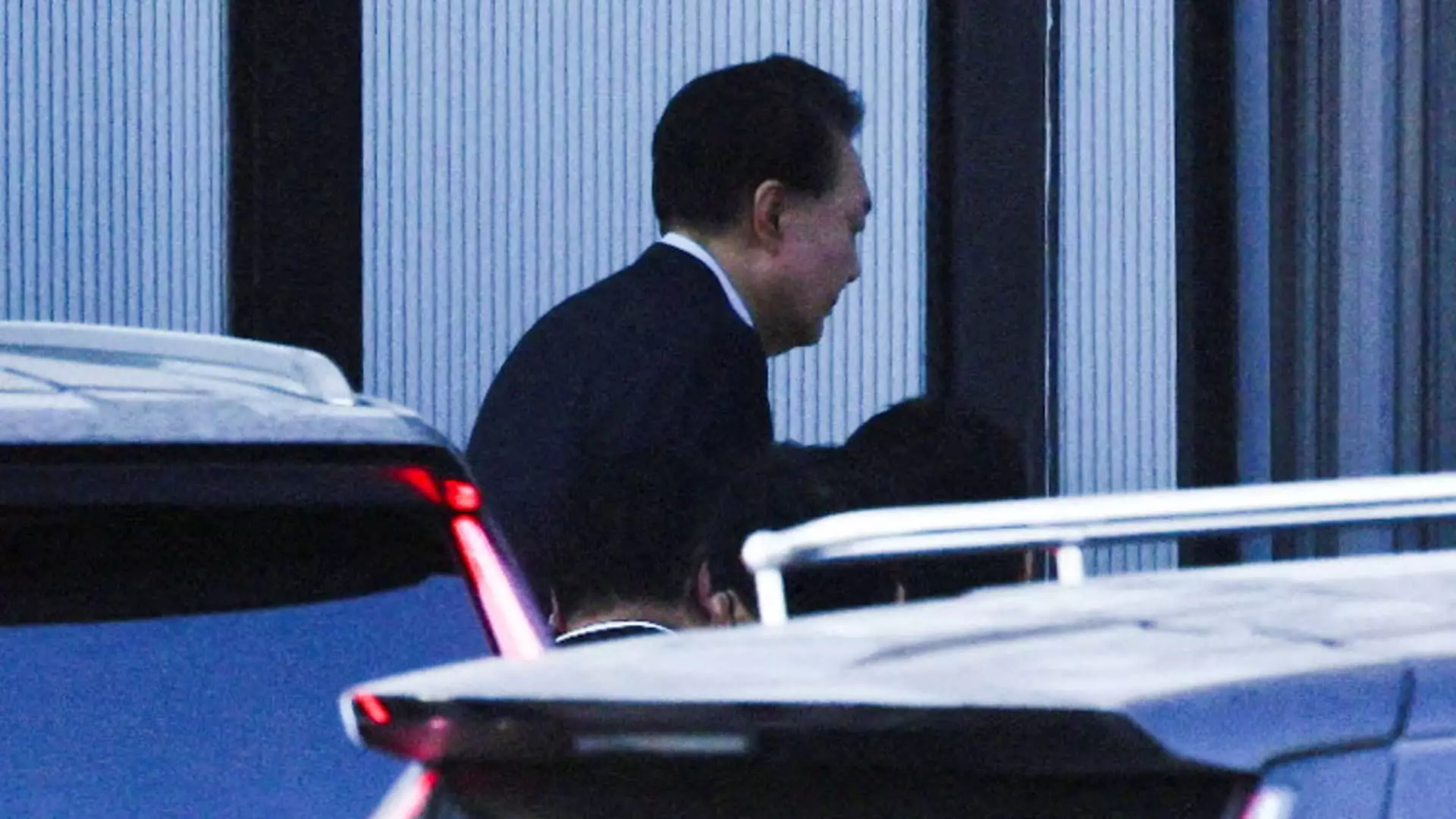In a striking turn of events in South Korean politics, Yoon Suk Yeol became the first sitting president arrested in the nation’s history following allegations of insurrection linked to his controversial declaration of martial law on December 3. His detention has stirred intense national discourse surrounding the boundaries of presidential power and accountability. The imposition of martial law had already raised eyebrows, and Yoon’s arrest signifies a new chapter in South Korea’s political landscape, where the actions of its leaders are increasingly scrutinized.
On a tense Saturday, Yoon attended a lengthy court hearing aimed at contesting a request from the Corruption Investigation Office for High-ranking Officials to extend his detention by up to 20 days. This hearing, lasting nearly five hours at the Seoul Western District Court, was marked by a noticeable absence of cooperation from Yoon, who has remained largely silent throughout the investigation process. His lawyer, Yoon Kab-keun, later presented a facade of optimism, stating that Yoon had sincerely addressed the court regarding the legitimacy of his actions and sought to restore his honor amid the chaos.
The Public Response
The proceedings captured the attention of thousands of supporters who rallied outside the court, encapsulating a divided public sentiment. These supporters, encapsulated by chants of “release the president,” demonstrated the presence of a faction that still firmly believes in Yoon’s innocence and the principle of lawful governance. Their vigorous support stands in stark contrast to the significant legal turmoil surrounding the former president. Eyewitness accounts described the scene as chaotic, with police containment efforts resulting in multiple arrests as tensions escalated.
The insurrection charges levied against Yoon are particularly significant, as they represent one of the few legal challenges to which an incumbent South Korean president is not immune. If found guilty, Yoon could face severe implications not only for his political career but also for the overall stability of the nation. The severity of such allegations raises pressing questions about the overarching issues of governance, public trust, and the mechanisms that keep political leaders accountable.
As Yoon awaits the court’s decision, the nation finds itself at a crossroads, compelled to confront fundamental questions regarding the structure of its political institutions and the rule of law. His case serves as a litmus test for South Korea’s democracy, prompting citizens and lawmakers alike to reflect on the balance between authority, representation, and accountability. Ultimately, the outcome of this unprecedented situation could reshape the very fabric of South Korean politics and civic engagement for years to come. A verdict either way will undoubtedly leave a lasting legacy, one that may either reaffirm or challenge the principles upon which the nation stands.



Leave a Reply